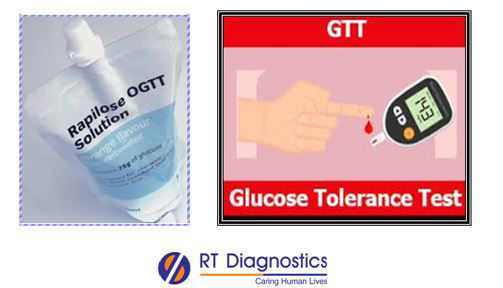After 50 Gms Glucose Given
This is well-known as Glucose Tolerance Test. In this test, Glucose is given to the person to examine the body’s response to Glucose (Sugar). It’s used to diagnose Type-2 Diabetes and Gestational Diabetes occurs in the pregnancy time.
AFTER ADMINISTRATION OF 50 GRAMS OF GLUCOSE:
Why 50 Grams Glucose test?
CLINICAL INFORMATION :
50 GRAMS GLUCOSE TEST is a short version of the oral glucose challenge test (OGTT) that measures the body’s response to glucose. This test is usually performed at any time of the day (not on an empty stomach) during pregnancy (generally on a first prenatal visit) and test result reading is taken after one hour to screen for gestational diabetes. Abnormal results indicate pre-existing type-2 diabetes that was not previously recognized. Without careful management of gestational diabetes in uncontrolled diabetes during gestation may lead to high-risk pregnancy complications such as pre-eclampsia or excess fetal growth and might increase the risk of birth injuries or C-section, where both the lives of mother and fetus are at risk. Furthermore, the complications may continue for the long term or for life if uncontrolled and hence this short version of the OGTT test is of immense importance.

General instructions:
Sample Requirement: Specimen - Blood sample drawn from the vein and also urine specimen in uncontrolled diabetes. Test Preparation: None.
NOTE - Sample for specimen collections may vary based on the patient’s condition/cases according to the patient’s presentingcomplaints / signs or symptoms:
SPECIMENREQUIREMENT (Special or Rare Cases) - As instructed and guided by Physician / Clinician / Pathologist / as per Laboratory’s requirements, according to procedures and protocols.
This Multi-Specialty Clinical Referral Laboratory RTDIAGNOSTICS provides precise and accurate tests with an extensive range of testing services to the medical centers to help in the diagnosis and identification of pathology in the test specimens for infectious diseases and also to evaluate the function of organ systems of the patient. It prevents further complications and helps to stabilize and restore health to near normalcy at the earliest without delay.



